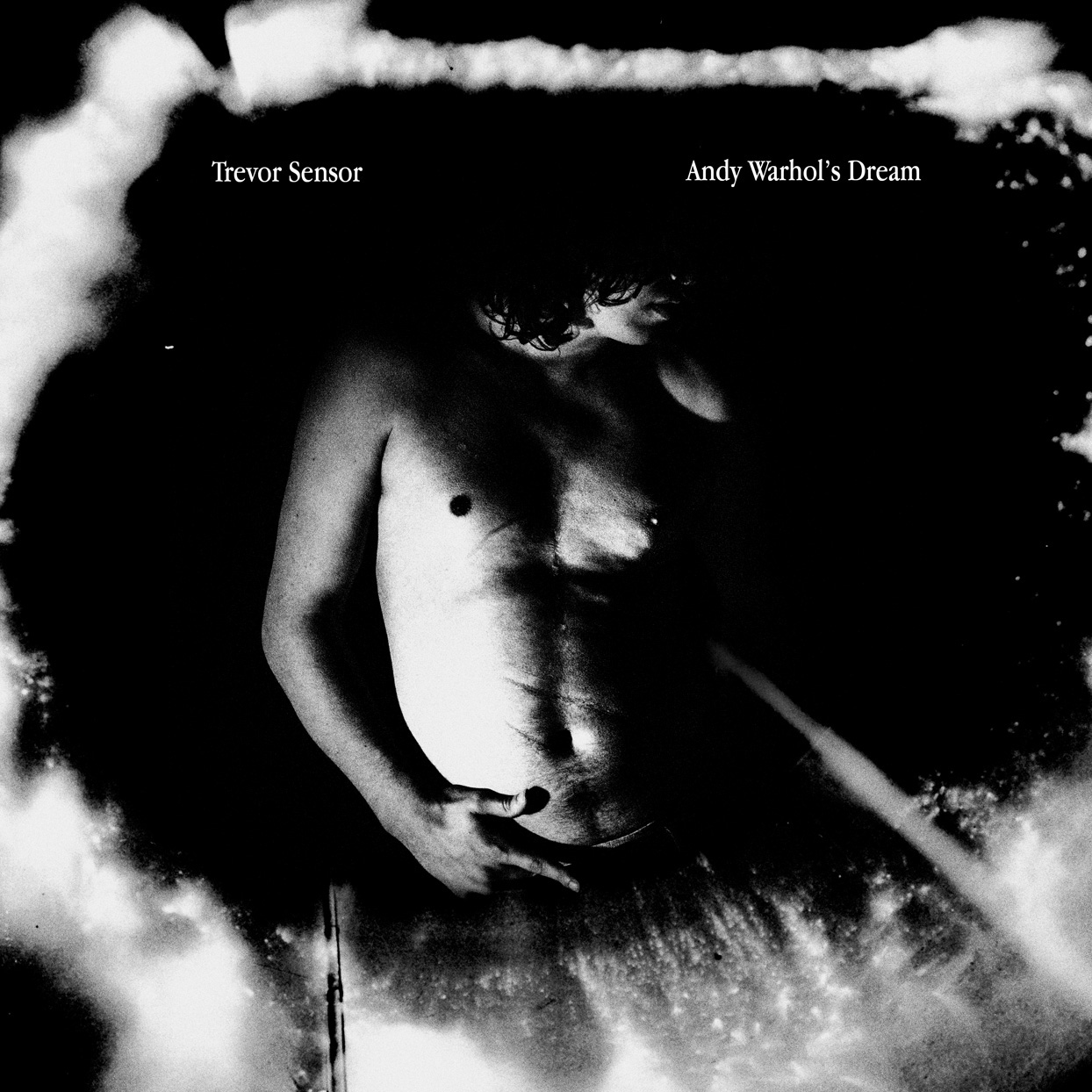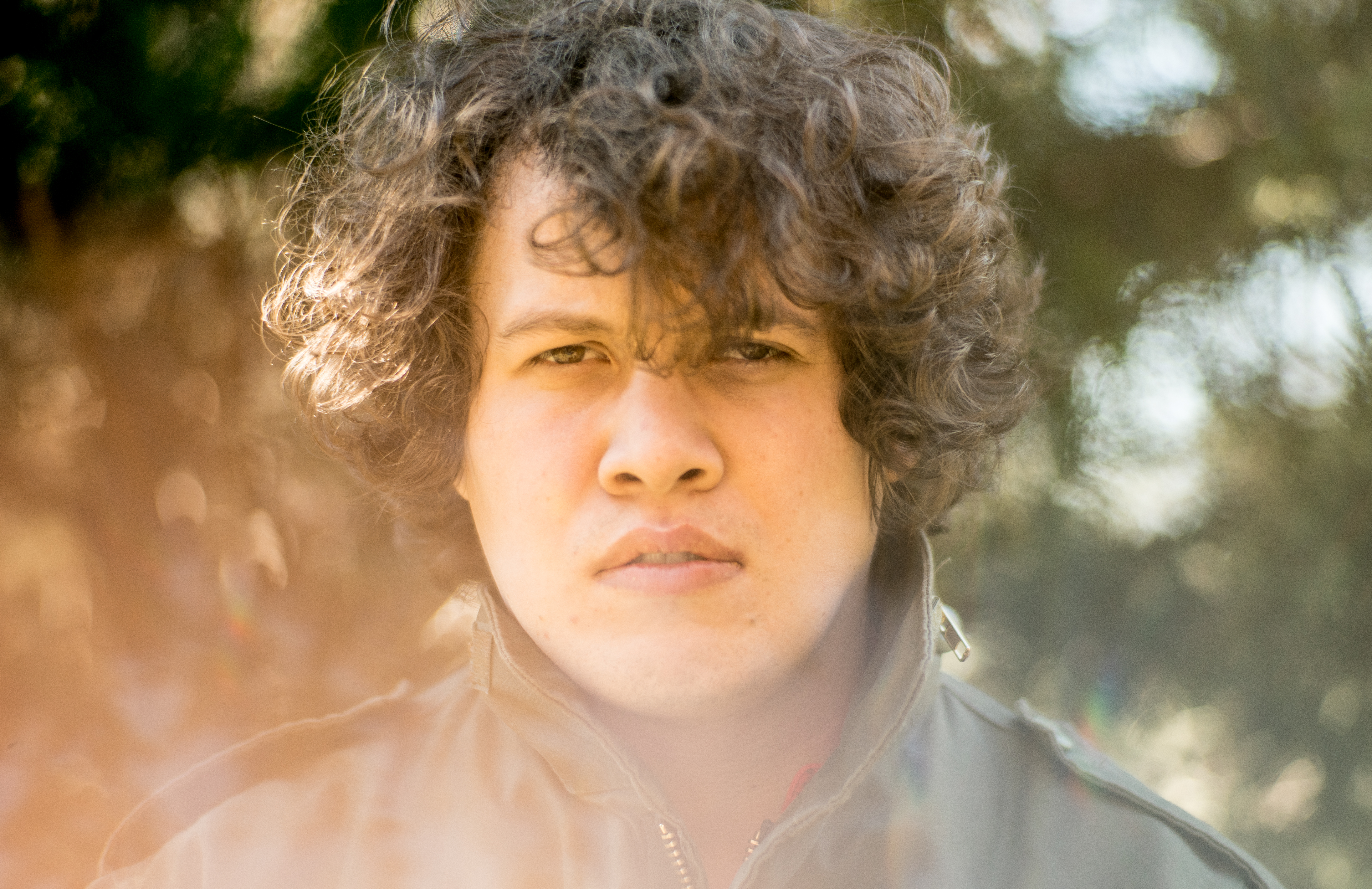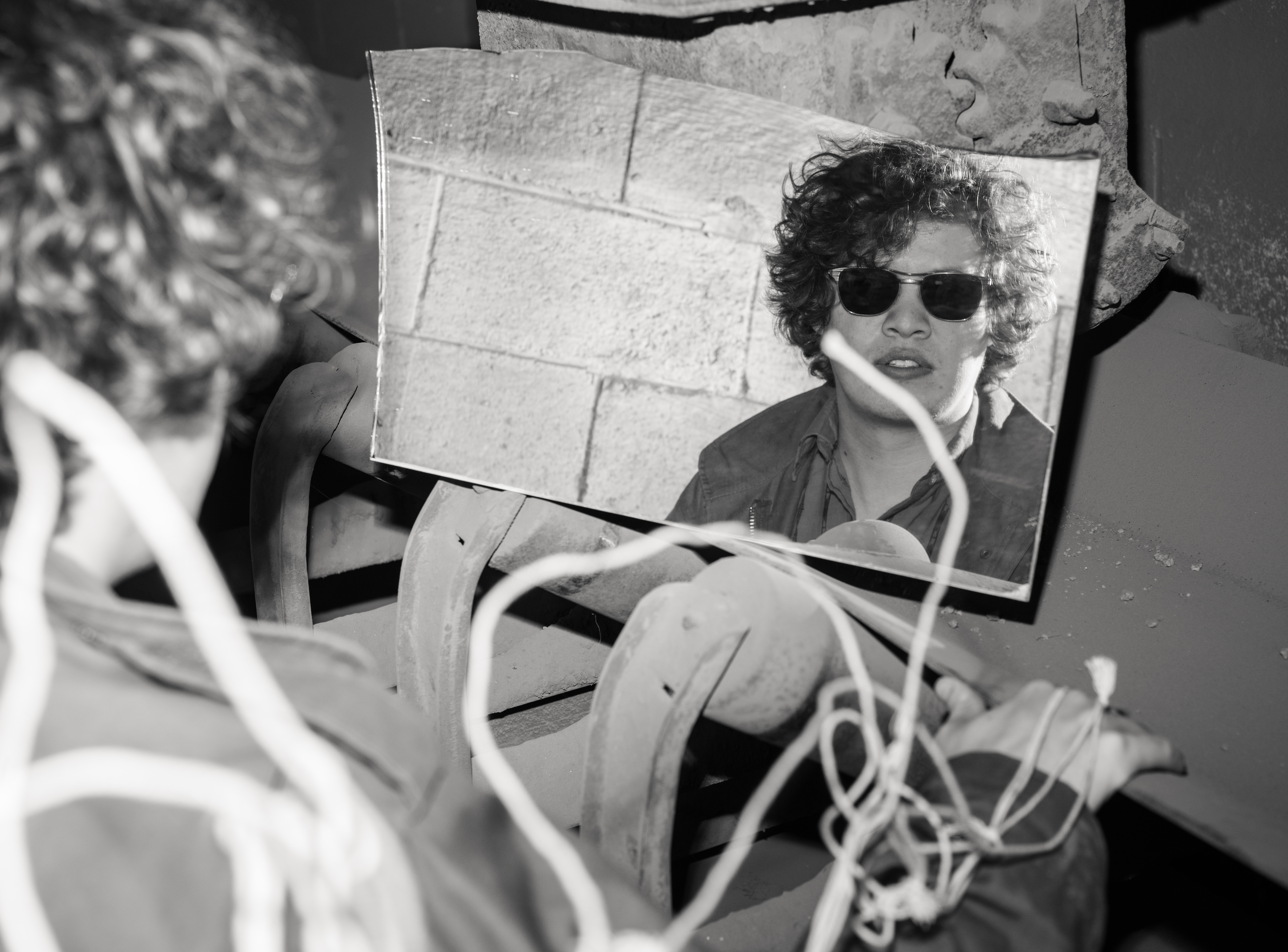Trevor Sensor is only 23 years old. He might also be one of the wisest people in music.
Sensor has become known for having a particularly unique voice. It sounds like something we should have been hearing a couple decades ago, not in 2017. Which is why it’s so great. Sensor’s music feels like a time capsule. One that bridges us to then, and back to now. The Sterling, Illinois native is bringing a certain raw quality back to the scene that is not only admirable, but refreshing. Sensor had previously studied English and philosophy at Central College in Pella, Iowa, two subjects that are very apparent in his writing. Now as an artist signed to Jagjaguwar (Bon Iver, Dinosaur Jr.) it seems this could be just the beginning for Sensor.
ALARM spoke with Sensor about his debut album, touring, his life related to music and the pop culture scene, and Midwestern dreams.

ALARM: Your debut album, Andy Warhol’s Dream, dropped this past June. What’s it like for you to look back now, at all the work and moments leading up to the release?
Trevor Sensor: I don’t know. I don’t really look back. I’m always kind of looking forward in a way. I got out and finished that record. Before it was even done I was kinda ready to make the next one in a sense. I don’t really try to look back on things like that. It’s for me to separate itself from the work. That way I can focus on future work and not get caught up on too much of how it’s received, or not received, I guess.
Can you talk about the ideas and themes that went into making that album?
I think once I had the title track done, and some other songs, a theme started to appear before me in terms of my relationship with being a young artist in this industry, and also my kind of relationship with the external world, with this industry and the 21st century.
I’m kind of like an art history buff. I’ve studied a lot of Andy Warhol’s work and I just find it really interesting about how he looked at what our society was becoming. How we were starting to vicariously live through people on the television or on the movie screen. I think I got obsessed with the idea of how we live in a world right now, where I don’t necessarily think people care about the art itself, they care about the artist. You know, they want some type of story or image, or idea to be sold to them. And it really doesn’t matter about the content if the story is sexy enough or if the artist or figurehead is sexy enough. That’s the kind of stuff that gets pushed out into the world. That was just kind of me coming to terms with that or maybe just giving that the middle finger, in a sense. I find it a really repulsive place where we’re at right now. I think it shows politically as well as artistically and culturally, across the board with where we’re sitting right now.
I view myself as a vessel for ideas and my work, and the ideas and the work last longer than the vessel anyways.
Going off that, with you coming from a small town and how you kind of view the idea of “fame” essentially, does any of this opportunity ever freak you out?
It doesn’t really freak me out. I mean I don’t do this for the sake of the money or the fame. I care about the financial success of the record as far as like, me getting green-lit for more projects. I could really care less, you know. I really prefer solitude over being in the limelight. I prefer, for example, writing and recording more so than the live show. So it doesn’t really freak me out — but I also really haven’t been regarded or rewarded in any sort of like big-time fame. So I don’t know, maybe if that ever happens I would freak out.
I’m grateful for the opportunity to be able to put music out and people actually believe in it enough to pay for it. I’d still be making it anyway, but I find fame culture and celebrity culture really kind of an ugly thing. It’s kind of a silly thing. Because I view myself as a vessel for ideas and my work, and the ideas and the work last longer than the vessel anyways.
So why not celebrate the work and not the vessel? Unfortunately it’s not a widespread belief.

You were just touring in Europe, how was that for you?
It was good. It was a nice run. There were some things that were difficult for me that happened over there that I’d rather not go into, but the shows were really good. It’s really night and day touring Europe in comparison to the states. My work just resonates over there more than here at the moment. If I had the money I’d probably run away from the United States as far as I could. Go full ex-patriot and just hide in Tangier or something.
I like being in Europe, there were just some unfortunate things that seemed to have occurred that kind of led me off the road a lot sooner than I thought.
With the crowds — what were the live performances like there in comparison to here?
Europeans, in general, seem to have more of an openness to experiencing art and give it a chance. I think Americans want things that they know. And they want it now [laughs]. We seem to place a high value on music with a financial or economic worth.
I think a classic example is when the Beck versus Beyoncé Grammy dilemma happened. What was interesting about it to me was how people were arguing for Beyoncé’s record — comparing the two as pieces of art versus what sold more. Beck basically wrote the record by himself, played almost every instrument on that, and Beyoncé’s record was made in like a factory. There’s like 30 plus writers and producers on there. She’s kind of this figurehead for this big product that has to sell. I mean Beyoncé’s work is based off her entertainment, her live show, and how much her record sells. Beck is an artist and it doesn’t matter how much his record sells. It’s the quality of the work that he’s making.
It’s interesting for an American award like the Grammys, that people got really upset over this. Not even over the sense of artistry, they got upset over the sales numbers. Like it’s Queen Bey, how could you say no to Queen Bey? The celebrity culture of that. In Europe, they just have better taste. A lot of great art and philosophy has come from Europe and they are more willing to listen to something, or read something, or look at a painting that’s outside of what they know. I mean for a lot of Americans — my voice — as they hear it they turn off. Because it’s not a “normal” or “pretty” voice. Even that’s ironic because 25 years ago the biggest singer in the world was Kurt Cobain.
It’s interesting how it’s not about how it sounds. It’s how much it’s pushed to people. Like “this is what you should be listening to.” And I’m not one of those things at the moment.
You mentioned how your voice is different than what you might hear on the radio today. When I first heard you, you were performing at Codfish Hollow and your voice just kind of stuck with me that whole night. When you were first getting into singing was it hard to figure out how to use it? Because it’s not what you were hearing all the time, or was different than what most people were into?
That’s a great venue. But no, because what I listened to as a kid was like Cobain, Billy Corgan, Jeff Mangum, Stevie Nicks. These very out of the box voices. Then eventually Captain Beefheart and Tom Waits. I found those two and I was like “Oh these are kindrid spirits!” [laughs] It [my voice] was even rejected in the small punk rock scene I grew up in, in nowhere Midwest. Everybody I knew was like “you sing like shit” and I was like well here’s an A, and you can’t hit the A, and that’s because you don’t know music and I do.
I’ve always kind of grown up in this outsider role. So it really just didn’t surprise me.
Like you said, you’re from a small Midwest town. How do you think that shaped you? Now that you’re a little older are you able to appreciate growing up there?
Yeah and no. I appreciates aspects of like the nature, of being surrounded by nature. I appreciate blue collar folk a lot more once I started interacting with more, and more, and more city folk, and art circles and stuff.
It’s really interesting because I think in a lot of cities, people generalize small towns as uncultured, pretty bland, “everyone’s the same,” and all that. But I think whats ironic is that those city people, they’re not as diverse as they think they are. When you’re in a city and you live in one, you basically find your little clique of like 10 people, and that’s all who you hang out with. If you’re in Chicago and part of the art scene, you’re basically hanging out in Logan Square only. You go to house shows there and all that stuff. And that’s fine and dandy, there’s nothing wrong with that. Now going out into the world I just don’t like this arrogance that a lot of different social environments have.
I WASN’T GOING TO LET PEOPLE TAKE THAT AWAY FROM ME JUST BECAUSE THEY DIDN’T LIKE WHAT I WAS DOING.
Basically like the Midwest, I found that it’s true to the fact that basically some of the nicest people do live here. But the things I don’t appreciate are the truisms that it’s not very cultured here. I was not encouraged to do art whatsoever here. I was discouraged. By teachers, parental figures, and friends even. I basically did it all by myself in terms of learning how to song write and getting into music. I was called homophobic slurs for listening to Smashing Pumpkins at 15. I mean Smashing Pumpkins, you know? If you would see what I listen to know what would you think?
There’s goods and bads about every place. I like the old Socratic rule of being like “Don’t be so sure of yourself. There are things about other places you don’t know about. And things about yourself that you might not be aware of because you don’t take the time to look in the mirror once in awhile.”

What pushed you to keep going with music then when it was so frowned upon?
It just was in me, you know? There are things about yourself sometimes that are secrets and a sense of destiny, or fate. Something that you gotta keep real tight because other people try to destroy them all the time.
I think I was just so obsessed with it. I’ve always been obsessed with art and literature. My whole life. I wasn’t going to let people take that away from me just because they didn’t like what I was doing.
So this was probably your biggest year so far, with your career. Are you excited to just relax the rest of the way and just write?
I mean I needed a break from the road, but I really want to get back and start making the next record personally. I’m ready in a lot of ways. There’s things I need to say that need to come out. If I had it my way I’d be in the studio constantly putting out things. Unfortunately the market doesn’t work that way anymore. Economics is dictating my destiny [laughs]. It’s nice to wind down, but things start to go bad for me mentally if I’m given too much free time after awhile. So I like to keep busy.
Listen to Trevor Sensor’s debut album and other music right here.
